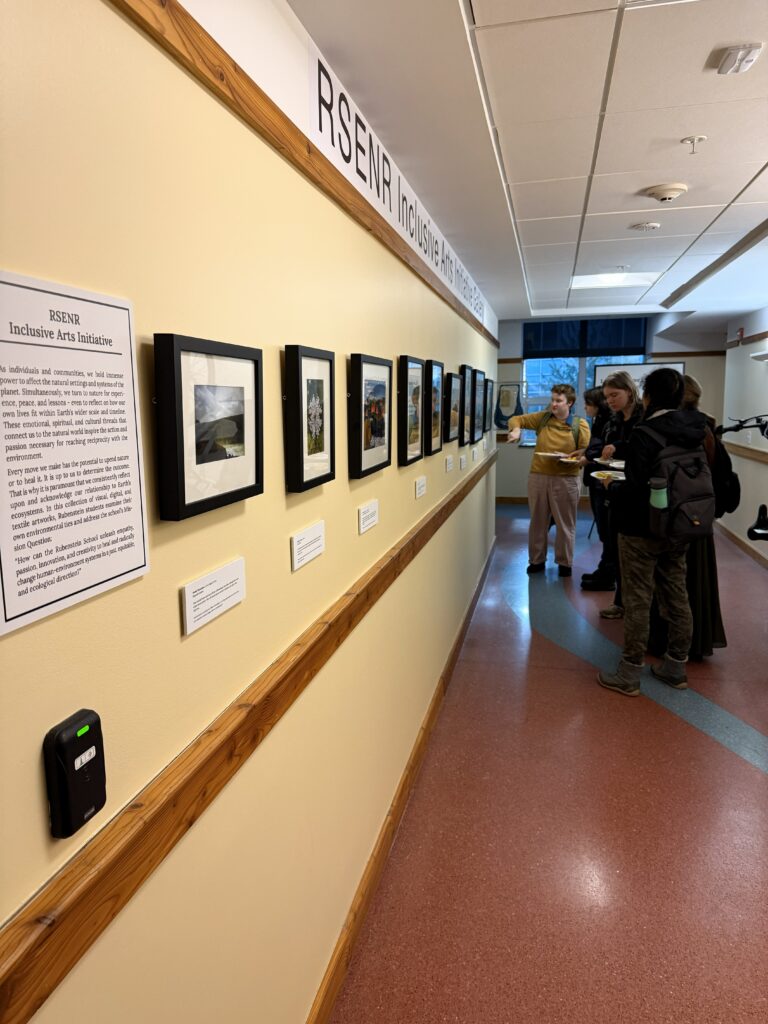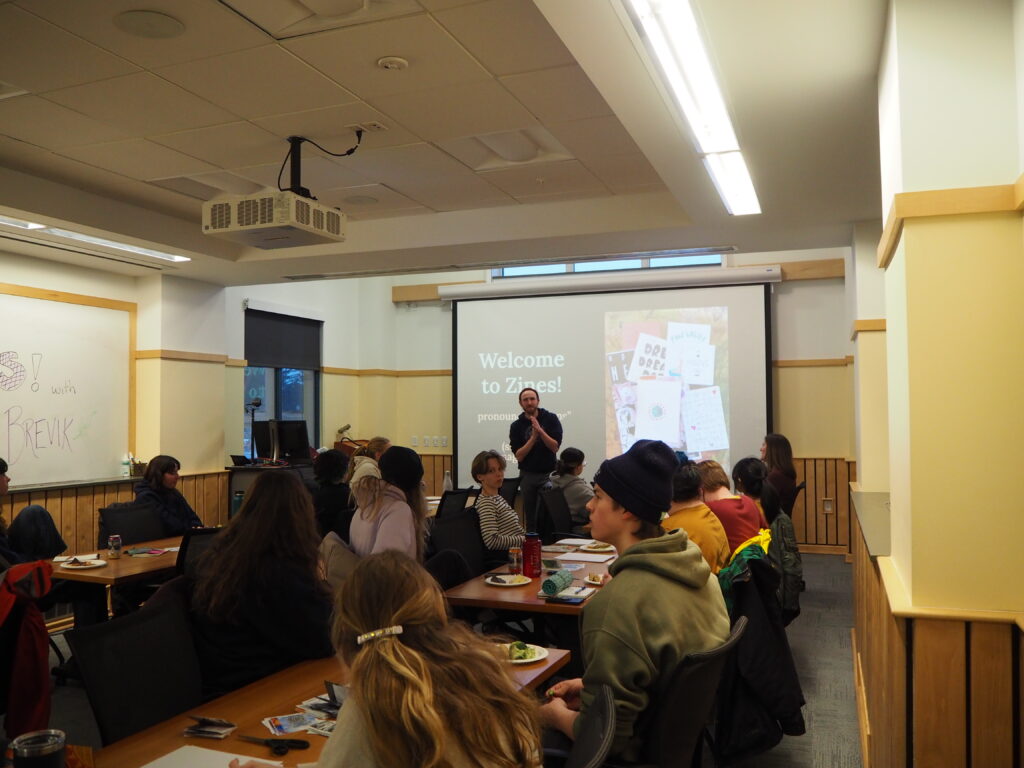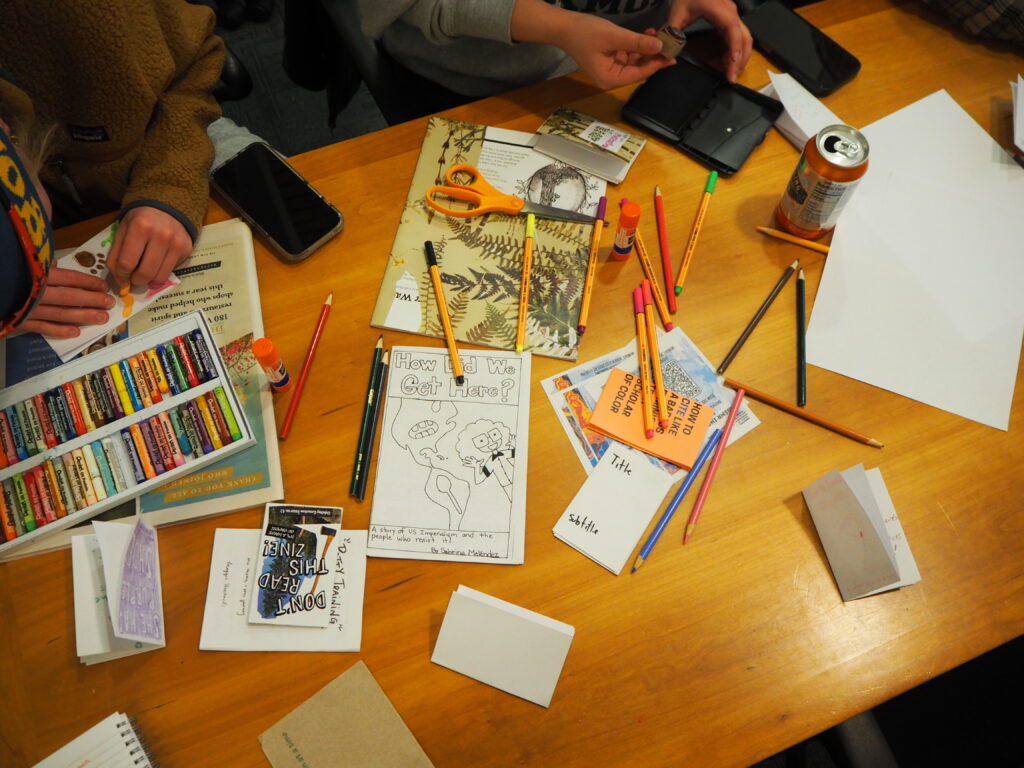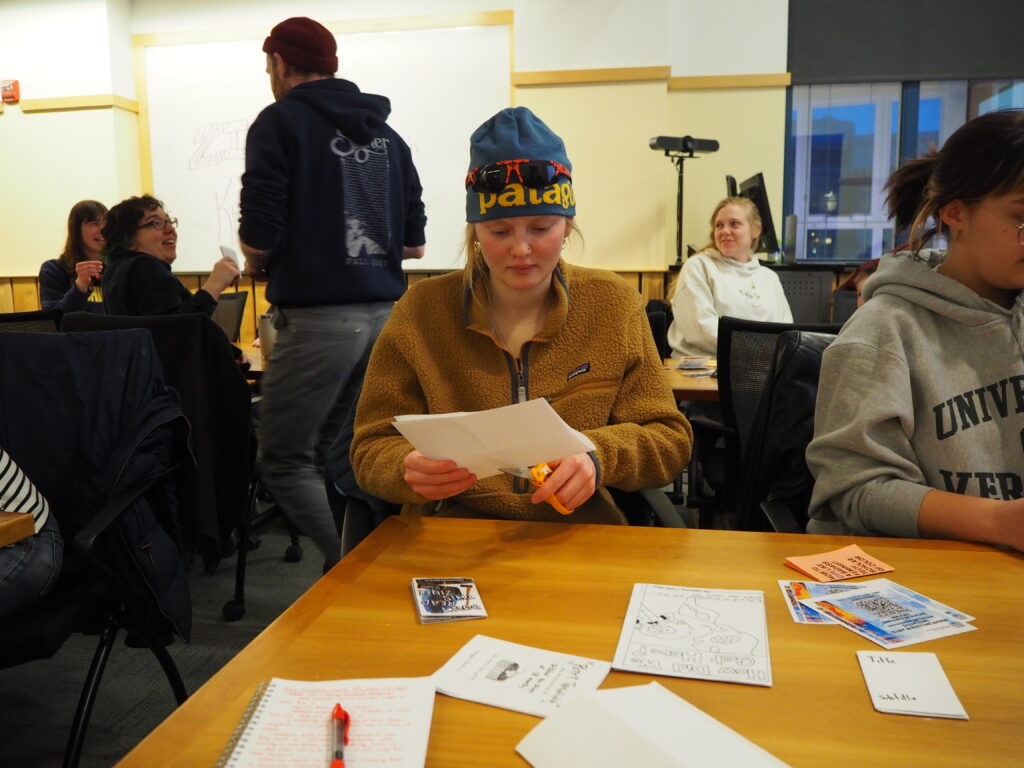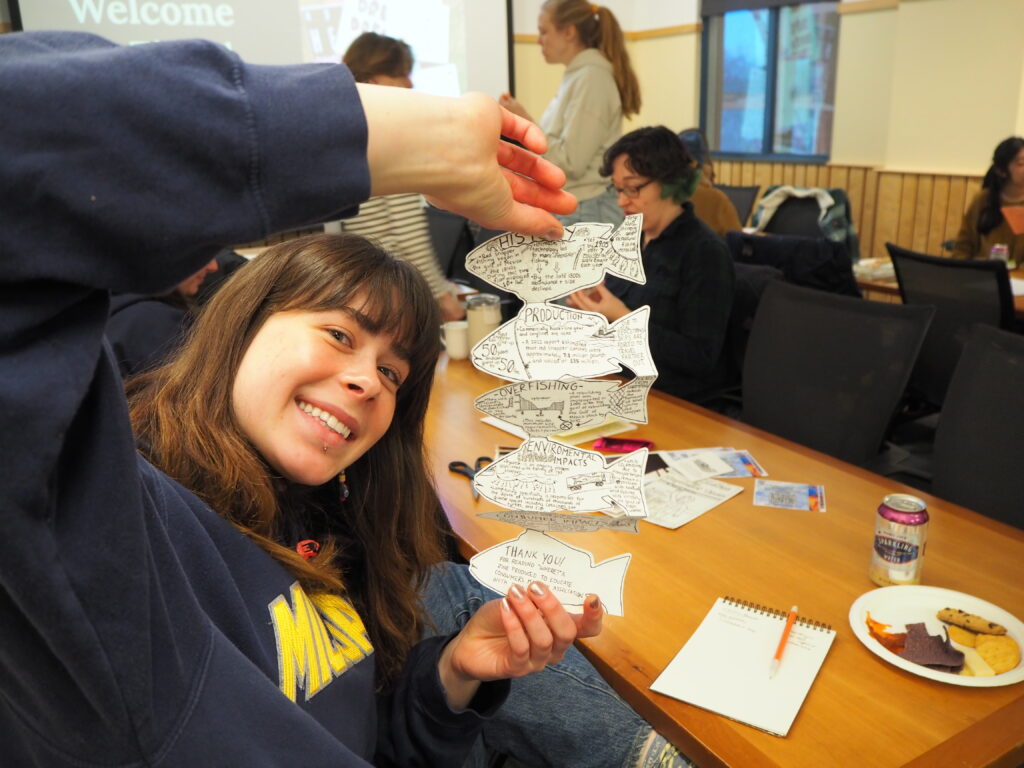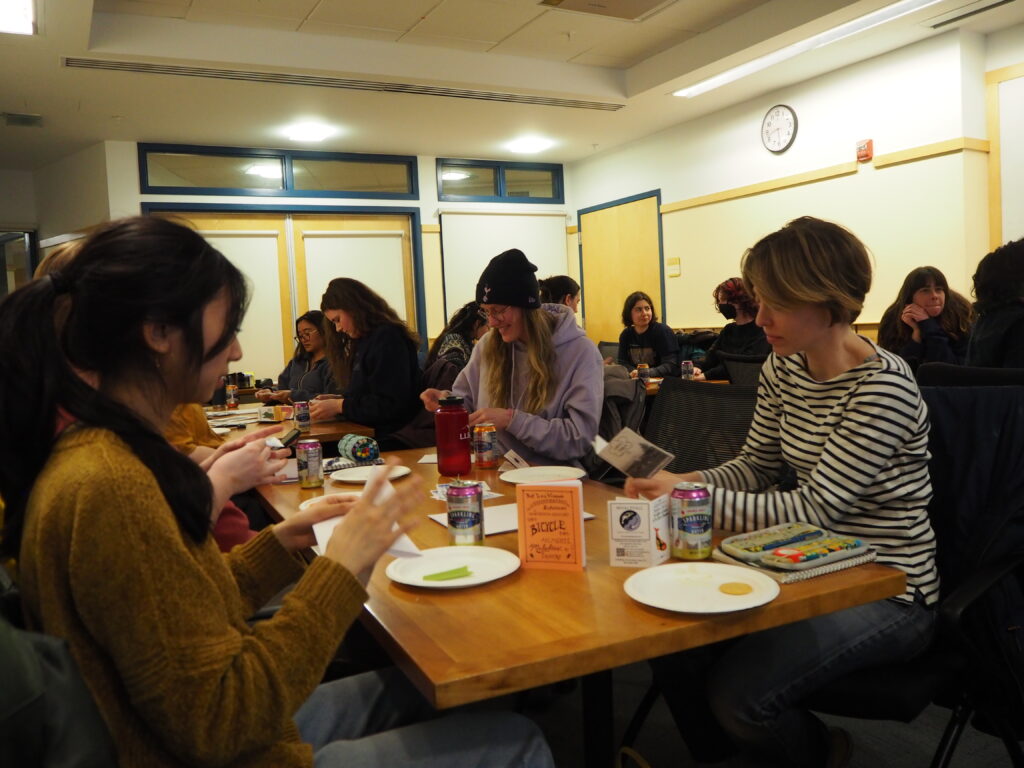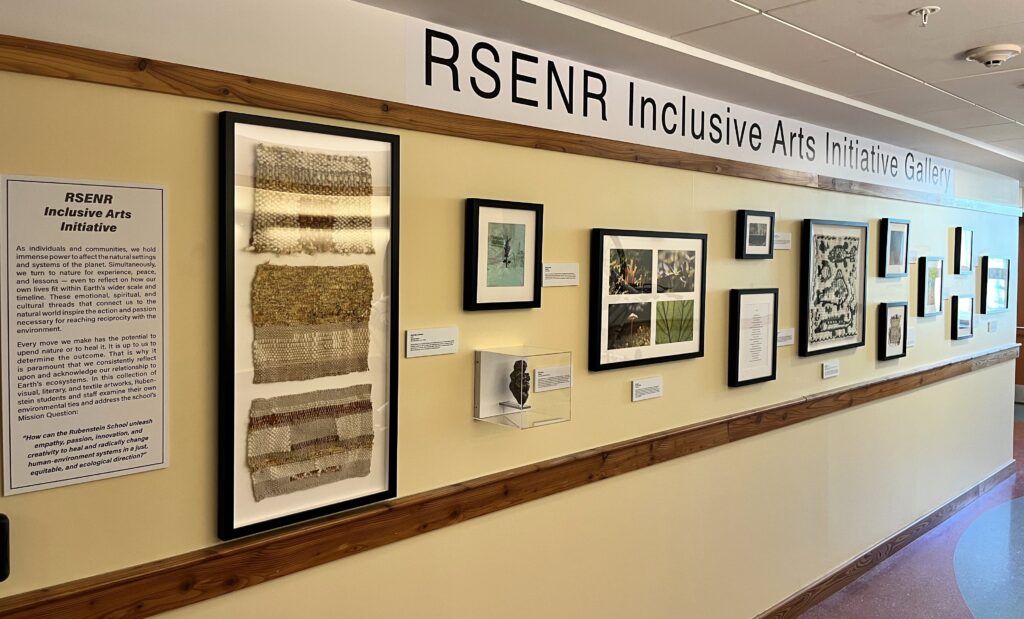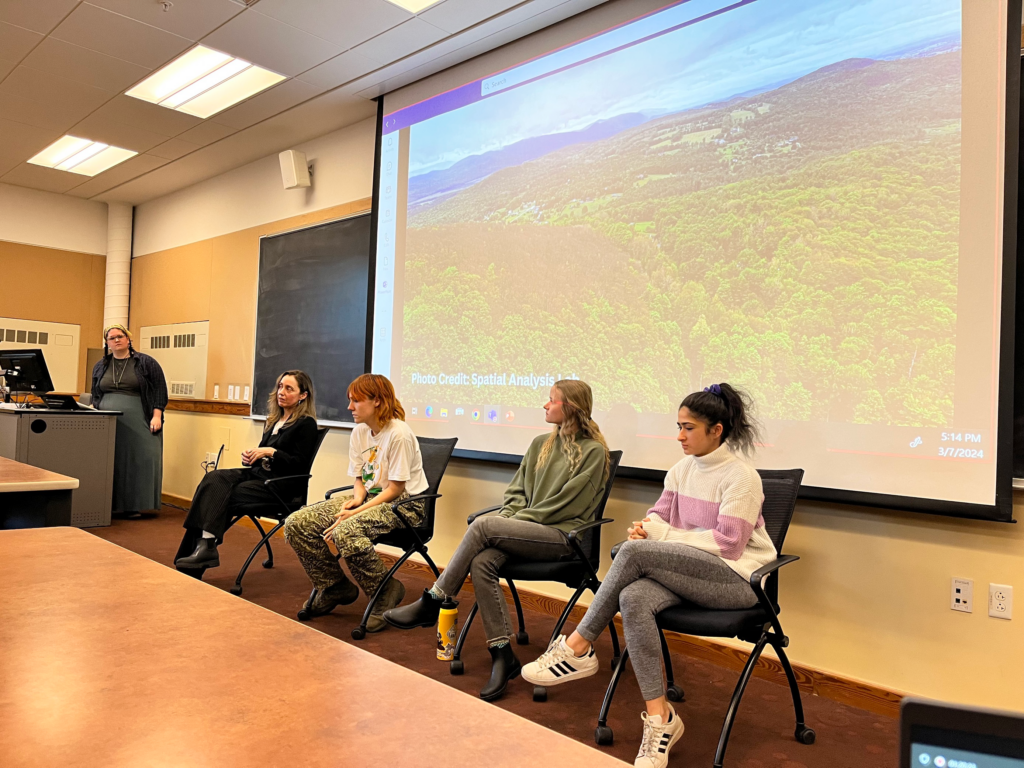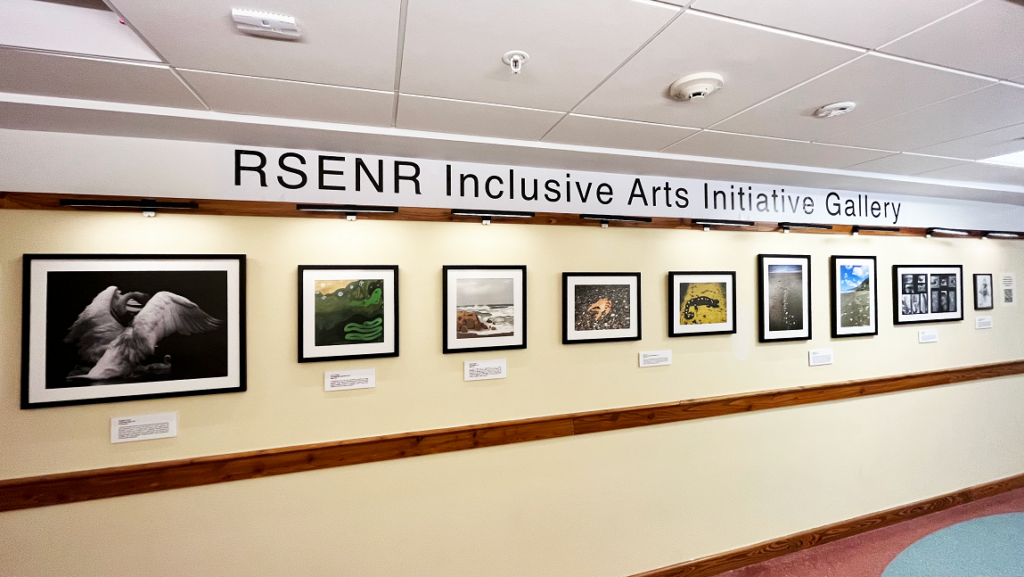The third Inclusive Arts Initiative gallery opened on October 23, 2025. It is displayed on the first floor of the George D. Aiken Center at UVM. The 2025/2026 gallery features ten pieces of multimedia artwork from Rubenstein School students.
The gallery rotates annually and an archive of each gallery lives on this website. If you are interested in submitting artwork to a future gallery, fill out this form.
